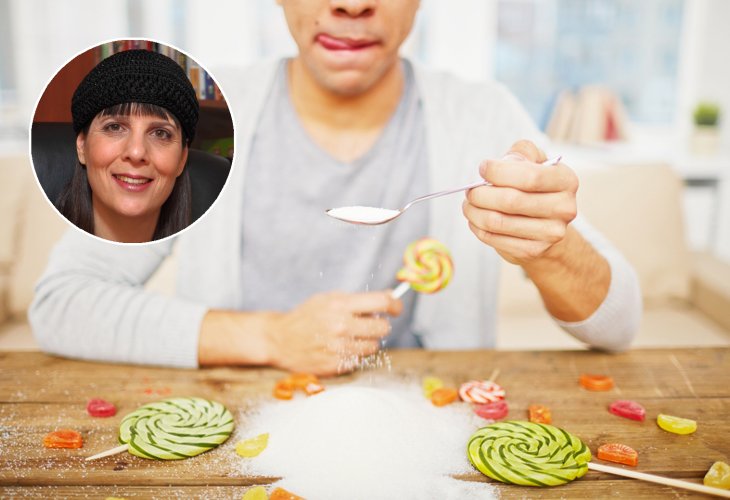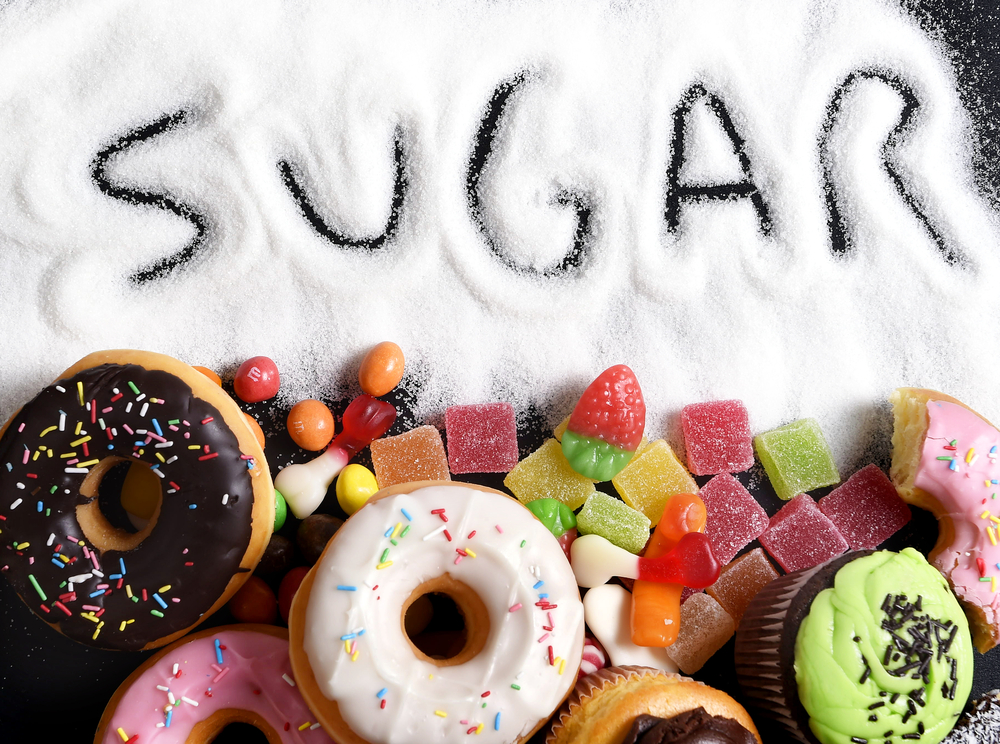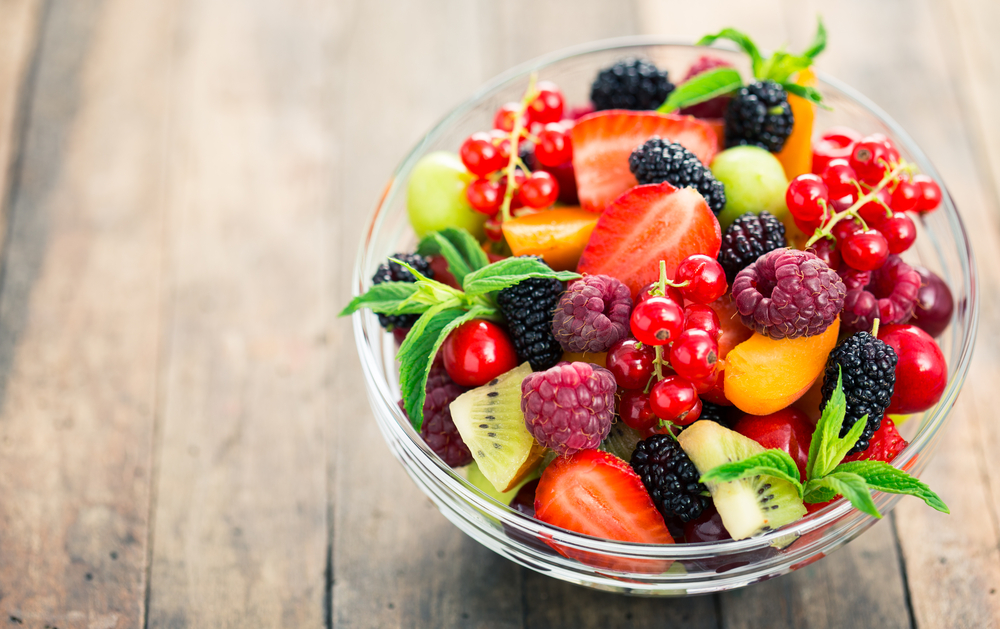Can Sugar Addiction Be Overcome? Nutrition Experts Weigh In
Despite the health risks, Israelis continue to consume large amounts of sugar. How can you break free from sugar addiction? Discover insights and tips from nutrition experts.
 Pictured: Sarah Bar-Asher (Photo: Private Album)
Pictured: Sarah Bar-Asher (Photo: Private Album)Are most Israelis really addicted to sugar, and if so, what are the symptoms, and how can one quit? Is brown sugar better than white sugar? What are the risks of consuming these seemingly innocent white granules? We spoke to naturopath Sarah Bar-Asher, a lecturer on nutrition and food industry topics, and with Gil Aviv from the ‘Gil Brothers – Natural Health’, to clarify the issue.
Increased risk of diabetes, heart disease, fatty liver, obesity, and addiction are some of the risks of excessive sugar consumption. Despite its growing infamy, in 2016, Israel led globally in sugar consumption per capita among developed countries, with the OECD report stating an average of 170 grams per person. Following Israel was Malaysia with 160 grams per person, Brazil with 155 grams, and the USA with 142 grams.
“Sugar is a general term for carbohydrates and originates from nature—sugar cane or sugar beets," says naturopath Sarah Bar-Asher. “In theory, anything natural shouldn’t harm us, but the main question is how sugar is processed and what it undergoes. Sugar cane grows in tropical climates; hence it is common in India. Centuries ago, Indians enjoyed sucking on sugarcane. Today, due to food industrialization, we can consume enormous amounts of sugar without realizing it’s too much. Just one sweet drink contains several teaspoons of sugar, failing to satiate but flooding our body with sugar.”
Is sweet good or bad for the body?
“Essentially, sweetness is good and necessary. The question is its source and whether it has been heavily industrialized into the brown or white granules we know. This sugar doesn’t add to our health; quite the opposite. It’s not only harmful but also addictive: industrial sugar leads to cravings for more. One can theoretically stop with a calming drink like tea, but the craving doesn’t disappear entirely. Sugar was once a preservative, and now stronger alternatives exist.
"The food industry uses sugar because it drives sales—we crave more snacks and sweets and keep buying them," Bar-Asher states. “Excess sugar oxidizes the blood, speeds up disease, and weakens energy in the long term. Thus, avoiding industrial sugar—both white and brown—is advisable as the difference is negligible.
Gil Aviv of 'Gil Brothers – Natural Health’ explains: “Healthy sugar exists in fresh fruits, certain vegetables like beets and carrots—whether raw or lightly cooked. The problem isn’t sugar as a raw material but in its processing: industrial processing makes sugar unhealthy. It’s akin to a child with a marker leaving spots unnoticed until it’s everywhere. Excess sugar reduces the body’s ability to repair damage, leading to chronic allergies and weight gain, potentially developing into diabetes.”
Aviv’s interest in healthy eating began in childhood: “Our mother cared about healthy eating, contrasting her own mother’s unhealthy cooking, which affected her. She ensured healthy cooking—less oil, barely any sweets or cola. We became nutrition experts by default. My wife later suggested formalizing this hobby, as we were already teaching it. We disagreed with mainstream views that shunned fats and focused on processed food. We sought alternative approaches and studied at ‘Alima’ by Rabbi Yuval Asherov and the nutritional medicine college based on the Rambam’s teachings.”
Today, even salty-looking products contain sugar. Gil Aviv states, “Some manufacturers add sugar for taste, and even if not added, foods like root vegetables (carrots, beets), bread, and pastries break down into sugar in our bodies. It’s not that these aren’t healthy, but rather how they’re consumed. An example: baked potatoes have less sugar than mashed ones. Wheat in ‘cholent’ is less sugary than bread.”
Sarah Bar-Asher adds, “Contrary to belief, sugar isn’t always listed by name on snack packages; hence reading the ingredients is vital. Diet snacks might contain glucose or fructose (corn syrup)—synonyms for sugar. Even sugar alcohols (like sorbitol) are sugar derivatives, meaning 'sugar-free' gum often still contains sugar. Even prepared savory or spicy salads contain sugar, and certainly products marketed as healthy or diet, like low-calorie energy bars.”
Do you consider it a full-fledged addiction?
Gil Aviv: “A saying goes, 99% of people are addicted to sugar but unaware, as its symptoms aren’t extreme. Unlike visible addictions, sugar addiction’s signs are subtle, and since sugar is legal and ubiquitous, it’s easy to access. Various examples, methods, and tests identify addiction, yet the simplest check is stopping sugar for four days, nothing breaking down into sugar. The average person fears this, and if they try, faces physiological struggles then mental resistance.”
 (Photo: shutterstock)
(Photo: shutterstock)Sarah Bar-Asher comments, “Indeed, many are addicted, not clinically. Among developed countries, Israel ranks first in sugar consumption.”
How do we break free? How do we undergo withdrawal?
Sarah Bar-Asher advises, “A definitive withdrawal approach: don't taper off; it must be sudden. Although challenging, it’s the only way. Try quitting for a month before regulating consumption. For instance, cut sugar spoons from coffee entirely. Sweetened coffee or tea is unnecessary; it’ll taste awful initially, but within four days to a week, sugar will seem unnecessary. Subsequently, reverting to the original amount makes it unpalatable. It’s worth enduring a week to eat healthier for the same calorie cost as those sugar spoons. Additionally, today’s abundance means kids snack on sweets and chips at the playground, often replacing nutritious dinners with vital vitamins, minerals, protein, and essential fatty acids. I suggest parents swap for fruits or dates at playgrounds or synagogues.”
Gil Aviv mentions, “Awareness and physical cleansing are key. Start with mental shifts—overcoming myths and misconceptions trapping us, like ‘food energizes me’ or ‘this is mom’s cooking; I can’t resist.’ We’re captive to a mindset keeping us addicted.”
“Beyond unhealthy snacks, some products seem healthy but aren’t. Indeed, many inexpensive products are processed and sugary. Ultimately, it’s about choice. One can manage without significantly increasing costs—a matter of selecting wisely. The situation is bleak, but choices are ours. Consumer decisions drive change, limiting processed food or snacks while setting personal examples. Demonstrating to children that we also abstain from unhealthy, sugar-laden foods effectively influences.”
“Understand that the body will resist; it’s dependent on it, and fears arise: What will I do? How will I cope? The answer is gradual dependence reduction—not a strict ‘no touch’ withdrawal. While we continue eating, we dismantle reliance, avoiding regret from overconsumption exceeding our intentions.”
Which products can we consume guilt-free?
Aviv Gil suggests, “Principally, healthy sugar exists in fresh fruits, foods with fiber, and vegetables like carrots and raw or lightly cooked beets, all very healthy. Nonetheless, consumption should still be low. How low varies by person, but after detoxing from sugar addiction, many consume just one slice of bread per day, avoiding sweets and sweet drinks entirely, with one treat or snack per week. It’s not definitive; some need more sugar, but breaking addiction is certainly achievable.”
 (Photo: shutterstock)
(Photo: shutterstock)5 Things to Know About Sugar:
1. Is brown sugar healthier than white sugar? No. They are quite similar.
2. Does sugar energize or awaken you for hours? No. Sugar's stimulating effect is short-lived. Quickly, energy dips, craving more sugar.
3. Are sugar-free cookies truly sugar-free? No. They contain sugar alcohols like maltitol and sorbitol, derivatives of sugar.
4. Do toothpastes contain sugar? Yes. Most contain sorbitol.
5. Do artificial sweeteners contain sugar? Yes. Some contain even 4 more calories than sugar.

